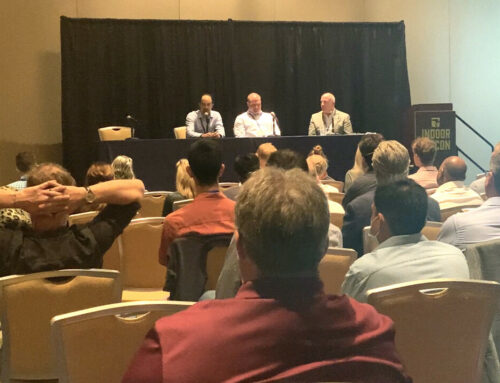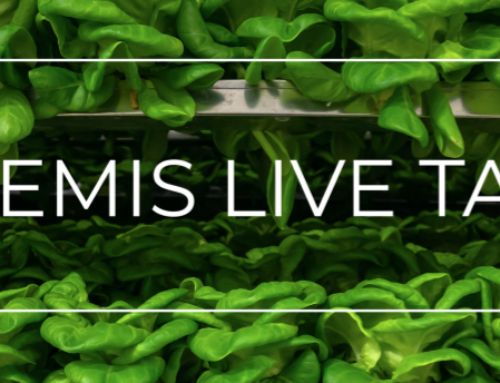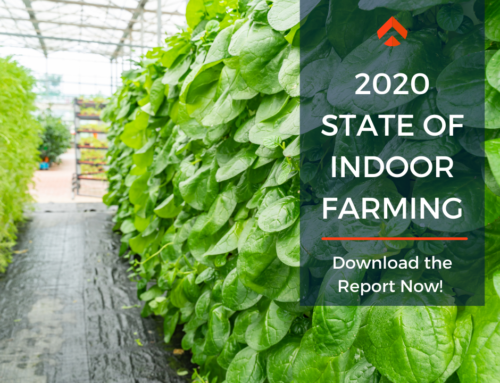Travis (Artemis): We’re very excited to be meeting today with Kayla Brown of Medically Correct the creator of “incredibles.” Kayla, you and I have known each other for quite a while but please share a little bit about yourself with our readers.
Kayla (Medically Correct): I am the Director of Legal Affairs for Medically Correct in Denver, Colorado, as well as an adjunct professor for Cannabis Hospitality at Metro University.
Travis: Awesome. Tell us a little bit about your history. How’d you get into this wacky industry?
 Kayla: I got into this industry following a possession arrest in Texas back in 2013 when I was in lawschool. I’m a Denver native and it went recreationally legal January 1st of 2014 and I was home wallowing in my sorrows and realized there’s a huge legal opportunity. I decided to get involved, my school supported it, and I created Texas Cannabis Industry Association and leveraged that to launch my career in the industry. After I moved back home to come work for Medically Correct.
Kayla: I got into this industry following a possession arrest in Texas back in 2013 when I was in lawschool. I’m a Denver native and it went recreationally legal January 1st of 2014 and I was home wallowing in my sorrows and realized there’s a huge legal opportunity. I decided to get involved, my school supported it, and I created Texas Cannabis Industry Association and leveraged that to launch my career in the industry. After I moved back home to come work for Medically Correct.
Travis: I love it. Can you talk about what you do for Medically Correct. What are you currently working on?
Kayla: I handle all of Medically Correct’s legal matters. I am in charge of all of our outside counsel. They all report to me, so I harvest out different things. I also manage all of our contractual obligations and oversee compliance in our online presence. My primary function lately has been mergers and acquisitions, and preparing for us to launch our new brands Quiq and Nové. Yeah, My marketing team and joke that I’m the wet blanket! Haha!
Travis: That’s usually the case when it comes to legal matters in the cannabis industry.
Kayla: Yeah. No one wants me to sit with them at lunch, but I do keep us on the up and up.
Travis: Could you share more about being an adjunct professor and what you’re working on there?
Kayla: I was approached by Metro University. They had a lot of students and other faculty interested in the cannabis space. They came to me and Medically Correct through our general manager. Through talking, we kind of figured out that my experience with Texas A&M and creating the marijuana law class there, I had a little bit of a background, so they asked me to create the “Cannabis 101 for Hospitality”. I didn’t really know much about hospitality, but we’re figuring that part out in addition to adapting to an online version. But other than that, it’s all about the industry.
The students are tasked to create their own licensed cannabis company as their final project, so that they can explore the regulatory environment and we can build more educated professional employees in the industry, which is the overall goal. Metro is continuing to expand their program with a cooking and cannabis course with one of my colleagues from Medically Correct this fall.
Travis: That’s awesome. You and I had talked a couple of days ago and I was really fascinated with some of our conversation, but tell us what you’re seeing with changes over the past year and what’s happening in the market when it comes to mergers and acquisitions.
Kayla: I’m seeing a lot more of them. Now that everybody’s gotten their licenses, we are seeing the next wave of industry development; which is, people starting to buy and sell those licenses. Those of us who have been in it from the beginning; such as Medically Correct, (established in 2010) have witnessed the passing of the Public Ownership Bill in Colorado. It has led to a significant up rising in access to capital which was formerly unavailable. So, the mom and pop businesses and self-funded businesses which were barely squeaking by now have greater access to capital and they’ve built something which can operate on a shoestring budget which is capable of attracting a lot more interest. This has led to more mergers and acquisitions and a better understanding of what we’re good at and what we could improve on with an injection of capital “The pandemic has sped up the evolution of a lot of advancement that the industry was already looking at”.
Travis: So have you noticed any changes in light of current events such as COVID-19, the economy and it being an election year? Have you noticed any real big trends or challenges from an M&A standpoint?
Kayla: One of the most significant things that happened was that several States have deemed cannabis companies essential. Where there was concern regarding viability, or the ability for a cannabis company to withstand something on a national basis, like a pandemic and whether it would be able to survive that demonstrates the industry’s durability. We’re not recession proof, but we are recession resistant and we’ve actually seen an increase in sales. But then there is the other side of the coin where there’s not going to be access to financial relief. Many of these cannabis companies are really nervous about how we’re going to sustain operations long term. But there are also those who have been around long enough in the industry who are starting to look at ways to thin down their operations or hunker down to survive in the meantime.
It’s also revealing how developed the industry actually is, because as manufacturers, we already had a lot of these practices in place. For us, it hasn’t been too much of a transition. The legitimacy of the industry is being revealed as we’re able to withstand these additional pressures and all of the social distancing precautions and increased sanitation. Another thing that’s changed is the implementation of curbside or online ordering. That’s happened recently and States like Ohio are looking at curbside and online ordering now that Colorado has done it. The pandemic has sped up the evolution of a lot of advancement that the industry was already looking at.
Travis: Very true. Great observation! Where do you see manufacturers going forward concerning possible changes to standards referencing quality and consistency of product for the ideal model? In other words, looking at the horizon and the changes brought on by COVID-19, how do you foresee the affects this may have as far as supply chains and maintaining GMP standards? Where do you see the industry going over the next year and do you see it maturing in any way?
Kayla: I believe a lot of standards won’t revert back to pre-covid. Manufacturers especially, will be at the forefront. GMP certification hasn’t been possible for cannabis companies because they just don’t acknowledge them. Medically Correct has always been on the forefront of safety and compliance, and I think the enforcement could be seen as an opportunity for the industry to strut our stuff and give our patients a peace of mind. I think that this will open the door for us particularly since cannabis companies have been deemed essential. And it’s a good thing- It will make the industry evolve and mature a lot faster than it would have before COVID.
Travis: I can agree with that. I would love to hear your thoughts on some of the challenges involving cultivation mergers and acquisitions, especially in this current economy. What are some things that are more challenging when you’re talking about potentially selling or acquiring a cultivation and what are some things you think cultivators should do to ensure their value is represented?
Kayla: I know that there’s the reporting from seed to sale requirement, but that just isn’t sufficient when you’re getting ready for a merger or acquisition. The reporting for your metrics to figure out if you’re profitable solely using an internal method is something that’s barely achievable through the seed to sale tracking. Having something more robust and developed would provide the national development necessary. For example, we own a grow in Ohio and we are located in Denver. So, we’re not there every day to ensure the plants are growing well, help troubleshoot with the growers there as to any pest control problems, or even know any metrics on each harvest at any given time. That’s where Artemis can be a huge benefit.
We also can’t be certain when it comes towards absolute end results, which is difficult when you’re preparing to sell your grow. Currently, there are no quantifiable metrics we can use to say to a buyer, this is how you maintain this once we are gone and this is how you validate and verify what you’re doing, what you’re buying now, and the plants that you’re growing, which puts the Buyer at a disadvantage. There’s also concern about strain, proprietary strains, and how to maintain the integrity of those when there’s not really an established federal database where you can go register, such as you would for a trademark. Being able to establish any legitimate source of data or supporting documentation for any of those strains might help get closer to that because we’re all just guessing right now as far as how to protect our strains. But, like I said, the seed to sale tracking does good for compliance, but in a merger and acquisition world, it requires more than just showing that you’re following the rules. It requires qualitative data and that’s something that is lacking.
Travis: As a final question and to gain some insight from Kayla, what piece of advice or wisdom would you share with the industry? What is something you think everybody should know or just a good piece of information for anybody in the industry to use.
Kayla: I have a twofold – a dual thing. The first thing is being able to measure the effectiveness of whatever it is you’re doing. That is going to be your key to success. In the beginning, the industry was mostly about just being able to get up and get started, but now it’s the ability to measure the success of your marketing efforts, of your cultivation efforts, and/or the tweak and change in your grow process. Being able to keep a strong hold on the qualitative and quantitative data that you have from the beginning is so much easier than trying to figure it out years down the road.
The second thing is – Good hires matter. Invest in some kind of review process instead of just taking anybody and everybody. Initially, the industry was not so selective, so anybody who was willing was a live body, but now that there’s an established talent pool. Take the time to invest in those resources and evaluate who you’re hiring, because the cost of a bad hire is monumental. There will be a lot of opportunity to hire the right people, especially following arecession. There’ll be a big, deep talent pool.
Travis: I love it. That’s fantastic. Well again, I want to thank you so much for chatting with me today. Like I said, I look forward to a long continued relationship with you and I look forward to interactions with you within the industry as the years go on…
Kayla: I do as well. It’s always a pleasure talking to you. I hope to see you in real life soon, in the meantime, stay safe.
Travis: You too Kayla; Thank you so much.






Leave A Comment